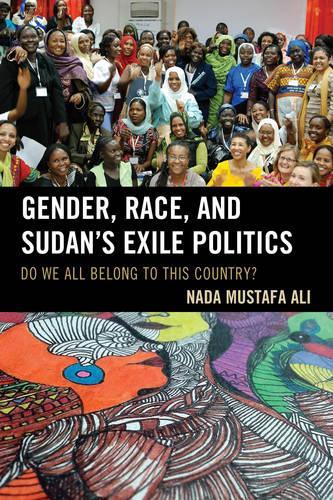
Gender, Race, and Sudan's Exile Politics: Do We All Belong to This Country
(Paperback)
Available Formats
Publishing Details
Gender, Race, and Sudan's Exile Politics: Do We All Belong to This Country
By (Author) Nada Mustafa Ali
Bloomsbury Publishing PLC
Lexington Books
18th April 2017
United States
Classifications
Professional and Scholarly
Non Fiction
Gender studies, gender groups
323.1624
Physical Properties
Paperback
234
Width 150mm, Height 231mm, Spine 17mm
358g
Description
Gender, Race, and Sudans Exile Politics examines the gendered and racialized discourses and practices of the Sudanese opposition in exile through the opposition movements of the 1990s and early 2000s, and discusses the history through which these discourses evolved. The military coup that brought the National Islamic Front (NIF)now National Congress Party (NCP) to power in 1989 not only forced most political parties, trade unions, and activists in Sudan into either exile politics or underground activism; it also urged many of Sudans political forces and activists to rethink the meaning of belonging and of the Old Sudan. In the mid-1990s, this involved a rethinking of the relationship between religion and politics, acknowledging Sudans diversity, acknowledging the need to restructure Sudans economy and politics to ensure equal access and participation for the historically marginalized, and committing to self-determination for the people of South Sudan. The concept of the New Sudan broadly captured this rethinking. This book interrogates the relationship between womens organizations and activisms in exile on one hand, and nationalist, transformative, and other political movements and processes on the other. It further discuses transnational coalition building across difference, including racial difference, between womens organization seeking to transform gender relations in Sudan and South Sudan.
Reviews
Riveting with theoretically informed and empirically founded critical analysis of the futility of male-centered discourses and practices endorsed by leaders purportedly leading national liberation struggles and state-building institutions in Sudan and South Sudan. A timely book by a committed intellectual and professional academic and a must read for young African change agents striving to avoid historic setbacks of failed ruling elites in sub-Saharan Africa. -- Atta El-Battahani, University of Khartoum
Nada Ali's detailed, fine-tuned feminist analysis has opened my eyes to Sudanese women activists' years of deep theorizing and sophisticated strategizing. I urge anyone trying to make sense of the gendered politics of social movements, of nationalism or of contemporary patriarchy to read this smart, engaging book. -- Cynthia Enloe, Clark University
Author Bio
Nada Mustafa Ali is faculty fellow in the Center for Governance and Sustainability at the University of Massachusetts, Boston.
